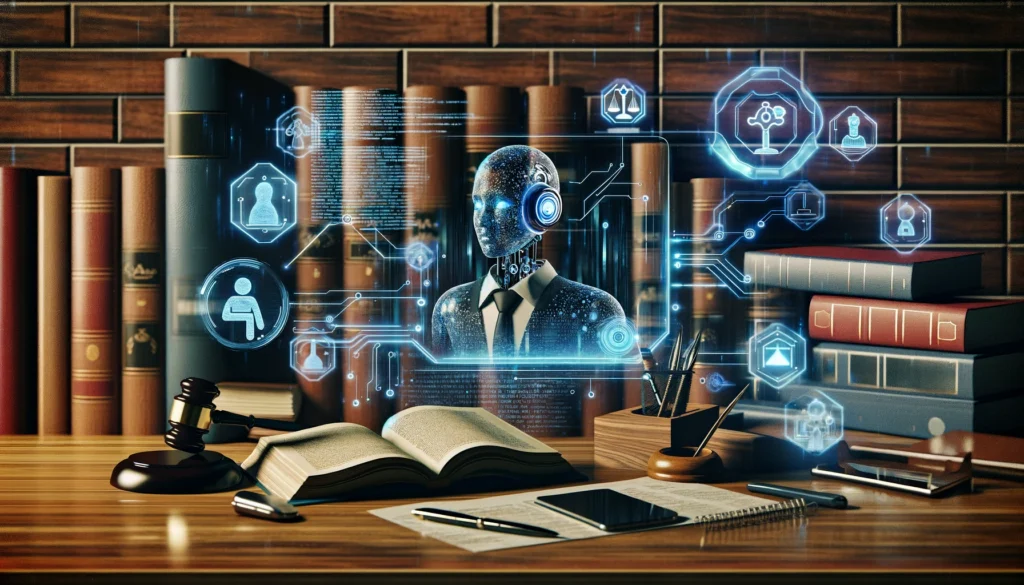
Revolutionizing TOD Deed Preparation: Setting the Stage
In the ever-evolving realm of law, the efficiency and precision in preparing Transfer on Death (TOD) deeds have become paramount. Given their critical role in estate planning, an error-free TOD deed ensures asset transfers occur smoothly upon a client’s passing. Traditional methods, however, often demand extensive time and meticulous attention to detail. Here’s where Large Language Model (LLM) tools come into play, with ChatGPT leading the charge. These tools integrate seamlessly into legal workflows, significantly enhancing productivity and accuracy. They herald a new era for paralegals, facilitating a nuanced and efficient preparation process that was previously unattainable.
The Power of Precision: Customized Prompts for TOD Deeds
Effective TOD deed preparation hinges on more than just having the right information; it requires precision. This precision lies in the art of crafting tailored prompts for ChatGPT, a process known as prompt engineering. Prompt engineering is instrumental in leveraging LLM tools to generate specific legal documents accurately. A well-crafted prompt guides ChatGPT to produce highly relevant and contextually appropriate responses, thereby reducing the risks of errors.
For paralegals, understanding how to mold these prompts for TOD deed preparation can streamline multiple facets of the documentation process. Whether it’s gathering comprehensive client information or ensuring compliance with state-specific regulations, customized prompts can drastically reduce the time and effort involved. Let’s delve into nuanced examples and explanations that underline the efficacy of these curated prompts in legal documents.
Also read:
ChatGPT Prompts That Impress: Top 5 Nuanced Prompts
Prompt 1: Comprehensive Information Gathering
Example Prompt: “Can you detail the specific personal information needed to prepare a Transfer on Death Deed for a client in [State]? Include full name, date of birth, social security number, property details, beneficiaries’ information.”
This prompt allows ChatGPT to produce a list of required details, ensuring no critical data point is overlooked.
Use Case: Efficiently gather all necessary client information during initial meetings, saving time and avoiding repetitive follow-up communication.
Prompt 2: Tailored Legal Language Generation
Example Prompt: “Draft a TOD deed template considering the legal requirements in [State], ensuring clear language and inclusion of all mandatory clauses.”
By refining the prompt to a particular state’s guidelines, ChatGPT generates a state-compliant template, reducing the chances of legal ambiguities.
Use Case: Accurately draft TOD deeds, ensuring they are tailored to state regulations and incorporate precise legal terminology.
Prompt 3: Error and Compliance Check
Example Prompt: “Review the following TOD deed for any errors or areas of potential non-compliance with [State] regulations. Provide suggestions for corrections.”
Conducting a compliance check through ChatGPT can identify discrepancies or omissions swiftly.
Use Case: Guarantee the deed’s compliance with legal standards, mitigating the risk of future legal challenges or complications.
Prompt 4: Accelerated Document Summarization
Example Prompt: “Summarize the key points and clauses of the given TOD deed ensuring it captures the essence of the document in a simplified manner.”
This prompt aids in boiling down the essential points of extensive legal documents, making them easier to review.
Use Case: Enable quick reviews and approvals by providing a concise summary that can be cross-verified against the original document.
Prompt 5: Client Communication Enhancement
Example Prompt: “Translate the following legal language in the TOD deed into layman’s terms, ensuring clarity and comprehensibility for the client.”
It helps produce a client-friendly version of the document, fostering better understanding and trust between the client and the legal professional.
Use Case: Simplify complex legalese for clients, ensuring they understand the implications of their TOD deeds fully.
Also read:
Pro Tips for Paralegals: Advanced Techniques and Best Practices
Maximizing ChatGPT’s potential requires insight and finesse. Here are some advanced techniques and best practices:
- Optimizing LLM Responses for Legal Accuracy: Always cross-check ChatGPT’s responses with authoritative legal sources. Despite its precision, human oversight ensures absolute accuracy.
- Integrating ChatGPT into Daily Workflow: Embed ChatGPT tasks into your routine. Ensure tasks like document drafting, compliance checks, and client communications are facilitated using LLMs to save time consistently.
- Real-Time Adjustments for Better Results: Continually tweak prompts based on evolving legal standards and unique client needs to ensure the responses remain relevant and precise.
By aligning these techniques with daily tasks, paralegals can achieve significant efficiency gains and reduce the likelihood of errors.
Also read:
Beyond the Basics: Leveraging LLMs for Continuous Improvement
To harness the full power of LLMs, it is essential to build a repository of effective prompts. Regularly updating this repository and refining techniques based on experience ensures continuous improvement. This proactive approach empowers paralegals to maintain an edge in the ever-competitive legal landscape.
Also read:
Final Thoughts: Embracing Technology for Legal Efficiency
The integration of AI tools like ChatGPT into paralegal work processes promises to revolutionize the field. As technology continues to evolve, embracing these tools can unlock unprecedented levels of efficiency and accuracy. Paralegals are encouraged to experiment and innovate, leveraging these advancements to stay ahead of the curve and deliver exceptional service to clients.
Also read:
Resources and Further Reading
- Recommended Articles: “Leveraging AI in Legal Work” by The American Lawyer
- Books: “Artificial Intelligence and Legal Analytics” by Kevin D. Ashley
- Online Resources: OpenAI Documentation, LegalTech News
- Tools and Platforms: OpenAI’s ChatGPT, LegalRM


